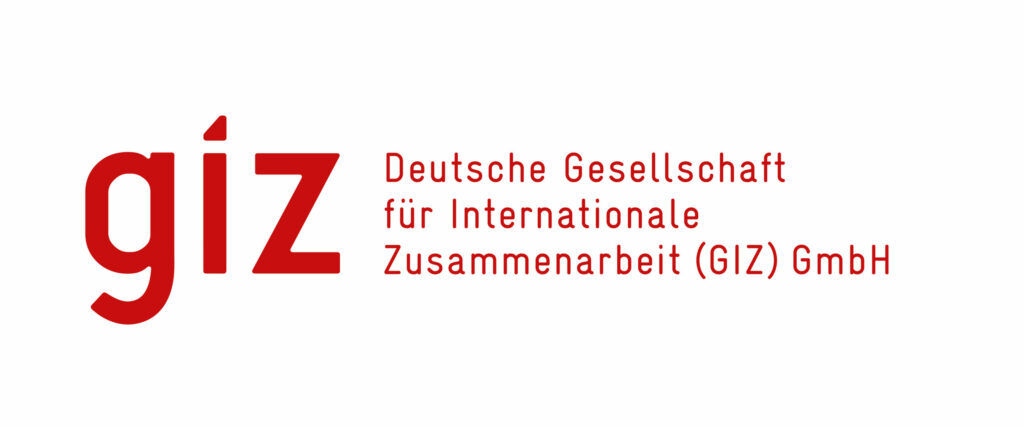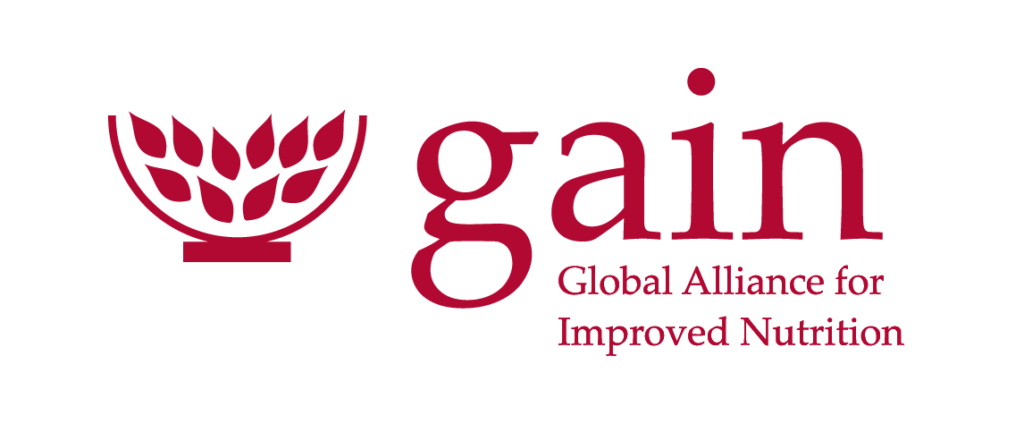Reducing food loss and waste of fruits and vegetables: The potential of urban(izing) food systems
Deutsche Gesellschaft für Internationale Zusammenarbeit (GIZ)
Global Alliance for Improved Nutrition (GAIN)
World Vegetable Center
Summary of topics and results
The consumption of fresh fruit and vegetables is vital for a healthy diet. But the amounts consumed fall well below WHO-recommended levels, particularly for low-income urban consumers across low- and middle-income countries, with negative health implications.
The panel entitled “Reducing food loss and waste of fruits and vegetables: The potential of urban(izing) food systems”, moderated by Marina Kosmus (Head of the Rural Development section, GIZ), explored mechanisms of social and institutional innovations, infrastructure development and economic incentives to reduce post-harvest losses of fruits and vegetables in rapidly changing urban food environments. This includes societal and institutional innovations, infrastructural developments and economic incentives. What challenges remain and what best practices can be leveraged in the future?
The two keynote speakers started off by emphasising the crucial role of reducing post-harvest losses of fresh fruit and vegetables for the transformation of food systems. They underlined that combating these losses requires a system change. Leonard Mizzi (Head of Unit Sustainable Agri-Food systems and Fisheries, European Commission) stated: “Many solutions are already known, the question is how to implement them.” Lawrence Haddad (Executive Director, Global Alliance for Improved Nutrition (GAIN)) used impressive data to show that in low-income countries, the middle of the supply chain (processing and packaging) is the critical point for fruit and vegetable losses. He also noted that most of the solutions for innovation in the food supply chain can be found in urban and peri-urban areas.
Following on from this, the four panellists Delphine Larrousse (Director, Global Engagement, World Vegetable Center), Angèle Tasse (Senior Expert on Sustainable Food Systems, ICLEI – Local Governments for Sustainability), João Tiago Carapau (General Manager, SIMAB – Sociedade Instaladora de Mercados Abastecedores) and Ruth Okowa (Country Director Kenya, Global Alliance for Improved Nutrition, GAIN) also discussed the potential of cities as pioneers in the transformation of food systems. The discussion focused on practical solutions, such as the right time for harvesting and correct storage, packaging and processing, as well as raising consumer awareness. In addition, training courses, peer-to-peer exchange and capacity building for production and trade can help to combat the problem. In the discussion about the various challenges and solutions, it became clear that cities play a crucial role in tackling food loss and waste.
In addition, remaining challenges such as infrastructure, household food waste, government commitment or the need for more research in fruit and vegetable development were identified as requiring further action.
Dr Ariane Hildebrandt (Director-General for global health, equality of opportunity, digital technologies, food security at the Federal Ministry for Economic Cooperation and Development, BMZ) summed up the panel discussion by saying: “The discussion showed that cities hold great potential to act as pioneers of change in reshaping food systems.” The urban–rural continuum and the transformation of agri-food systems is very important, not only for healthier people but also for the planet.
Speakers
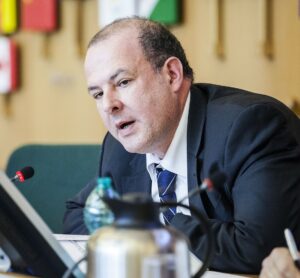
Leonard Mizzi
Keynote-SpeakerHead of Unit Sustainable Agri-Food systems and Fisheries / European Commission Show CV / Vita
CV / Vita
Dr. Leonard Mizzi is Head of Unit at the European Commission, Directorate-General (DG) for International Partnerships – Sustainable Agri-Food systems and Fisheries, since 1st of January 2017. Prior to this post he was Head of Unit for 10 years in DG Agriculture and Rural Development, first in charge of agri trade and development issues (2007-2014) and from 2015-2016 leading the inter institutional unit hence relations with the European Parliament, Council and consultative bodies and well as steering the Civil Dialogue Groups.
He is a graduate in Public Administration from the University of Malta (BA Hons First Class); and has degrees from CIHEAM-Montpellier (Master of Science) and a Ph.D in Agricultural economics from the University of Reading (UK). He has been an author of a number of articles and publications on agri food issues and nutrition in the Mediterranean region.
Dr. Mizzi has a broad working experience in the Maltese public administration and the Maltese private sector. He first worked in the Economic Planning Division of the Office of the Prime Minister (Malta) and from 1996-2006 was the first Director of the Malta Business Bureau in Brussels- the office of the Malta Chamber of Commerce and Enterprise and the Malta Hotels and Restaurants Association.
He was also visiting lecturer at the Boston University (Brussels campus), Open University and Malta University. He often lectures at the College of Europe in Bruges.
His areas of specialisation are global food security governance, agriculture and food and nutrition security, the Mediterranean and Sub Saharan Africa.
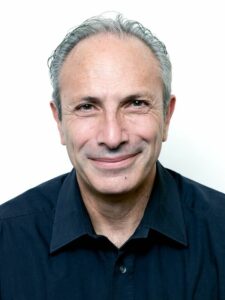
Lawrence Haddad
Keynote-SpeakerExecutive Director / Global Alliance for Improved Nutrition (GAIN) Show CV / Vita
CV / Vita
Dr Lawrence Haddad is GAIN’s Executive Director since 2016. From September 2020 and up to the United Nations Food Systems Summit that took place on 23 September 2021, Lawrence chaired Action Track 1: Ensuring Access to Safe and Nutritious Food for All. Lawrence is also the co-convener of the Standing Together for Nutrition. Prior to GAIN, Lawrence was lead author of the Global Nutrition Report, Director of the Institute of Development Studies (IDS), and Director of the Food Consumption and Nutrition Division at IFPRI.
He is the winner of the 2018 World Food Prize together with David Nabarro. Click here for more.
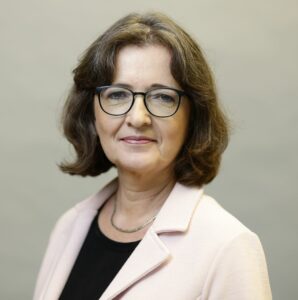
Dr. Ariane Hildebrandt
Keynote-SpeakerFederal Ministry for Economic Cooperation and Development (BMZ) Show CV / Vita
CV / Vita
Ariane Hildebrandt is director general at the Federal Ministry for Economic Cooperation and Development (BMZ), Germany. Since September 2023, she is responsible for global health, equality of opportunity, digital technologies and food security. She is an economist and has worked in various areas of the ministry since 1998.
Close CV / Vita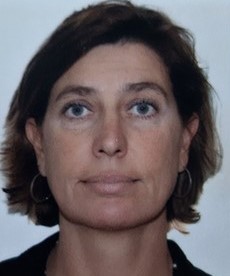
Marina Kosmus
FacilitatorHead of Section Rural Development / GIZ Show CV / Vita
CV / Vita
Marina Kosmus looks back on more than 20 years of professional experience working with the German Agency for International Cooperation (GIZ) in the areas of sustainable development, value chains, integrated management of natural resources, ecosystem services, biodiversity and climate change. Since May 2023, she is leading the section G520 “Rural Development”.
She has led bilateral and global projects in the areas mentioned above and was lead author of the IPBES Values assessment and participated on the IPBES task force for the use of the IPBES assessment results on policy instruments and tools. Through the years she developed different guidelines and trainings regarding the integration of ecosystem services in developing planning and sustainable management of ecosystems.
Marina holds a master’s degree in agricultural economics and rural development from the Georg August University in Göttingen and a diploma in Social Anthropology from the University of Buenos Aires.
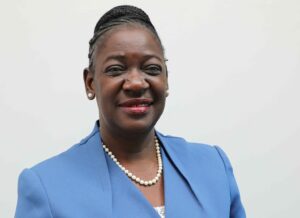
Ruth Okowa
PanellistCountry Director Kenya / Global Alliance for Improved Nutrition (GAIN) Show CV / Vita
CV / Vita
Ruth Okowa, GAIN’s Kenya Country Director, is passionate about transforming food systems to sustainably deliver nutritious, healthy, and safe foods. Among other program portfolios, Ruth oversees the ‘Vegetables for All’ project that aims to improve dietary diversity for 1.1 million urban and peri-urban base-of-the-pyramid consumers by increasing the consumption of vegetables. Previously, she served as the Regional Director for Africa at BRAC International and has held top leadership positions in local and international organizations in numerous countries across the African region. Ruth was a Council member of a local university in Kenya and on the Board of Directors of a leading health college in East and Central Africa. She brings more than 25 years of experience in development across fields such as agriculture and food security, welfare and education, water, hygiene and sanitation, health, human rights advocacy and equality, and youth empowerment.
Close CV / Vita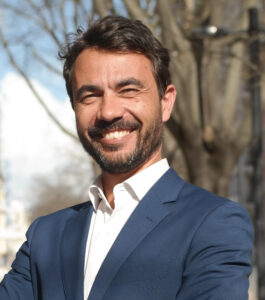
João Tiago Carapau
PanellistGeneral Manager / SIMAB - Sociedade Instaladora de Mercados Abastecedores Show CV / Vita
CV / Vita
João Tiago Carapau is the corporate general manager of SIMAB – Sociedade Instaladora de Mercados Abastecedores, a public company operating since 1993 in food and logistics, responsible for previous studies, sizing, designing, installation, management, training and promotion of the main Portuguese wholesale food markets. His other responsibilities include consultancy, innovation and sustainability in wholesale and local retail markets projects in Portugal and internationally. Since 2012, João has also held the position of executive director of the PATER – Mais Território / More Territory, where he’s responsible for consulting in territorial planning and marketing, climate change and green economy, products and food markets innovation. He holds a degree in ‘Agronomics – Agricultural Economy and Rural Sociology’ and a post-graduation in ‘Marketing Management’, a Master’s degree in ‘Marketing’ and an advanced post-graduation in ‘International Trade and Industrial Organization’.
Close CV / Vita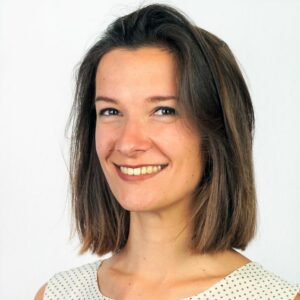
Angèle Tasse
PanellistSenior Expert on Sustainable Food Systems / ICLEI - Local Governments for Sustainability Show CV / Vita
CV / Vita
Angèle Tasse is a Senior Expert on Sustainable Food Systems at ICLEI, a global network of more than 2,500 local and regional governments committed to sustainable urban development. Angèle co-leads ICLEI’s Global CityFood Program, where she works with cities to transform their food systems and create healthy and sustainable urban food environments. Before joining ICLEI, Angèle worked on global policy engagement on food and climate at the CGIAR Research Program on Climate Change, Agriculture and Food Security, in cities as well as in the private sector. Angèle has a background in Public Policy and Biology.
Close CV / Vita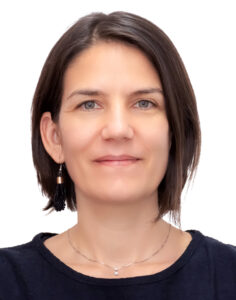
Delphine Larrousse
PanellistDirector / Global Engagement, World Vegetable Center Show CV / Vita
CV / Vita
Delphine Larrousse is a member of the Executive Management Team at the World Vegetable Center (WorldVeg). Currently holding the positions of Director for Global Engagement and Regional Director for East and Southeast Asia, she is stationed in Bangkok, Thailand.
Delphine brings to the table 18 years of expertise in designing and managing programs spanning nutrition, food security, agriculture, climate change, and livelihoods across the globe. Having lived in 10 countries, she is fluent in five languages. Delphine commenced her career working with farming communities in the Amazon, engaging with urban dwellers in India, and establishing her own NGO in Ecuador. Subsequently, she dedicated a decade to Canada’s International Development Research Centre (IDRC), where she spearheaded the Communications and Engagement strategy for the Canadian International Food Security Research Fund—a collaborative initiative of IDRC and Global Affairs Canada. In 2019, Delphine joined WorldVeg.
Firmly believing in the transformative power of vegetables and the critical role of research in fostering more nutritious and resilient food systems, Delphine is dedicated to advancing these principles in her current roles at WorldVeg.
Email: [email protected]
Close CV / Vita
